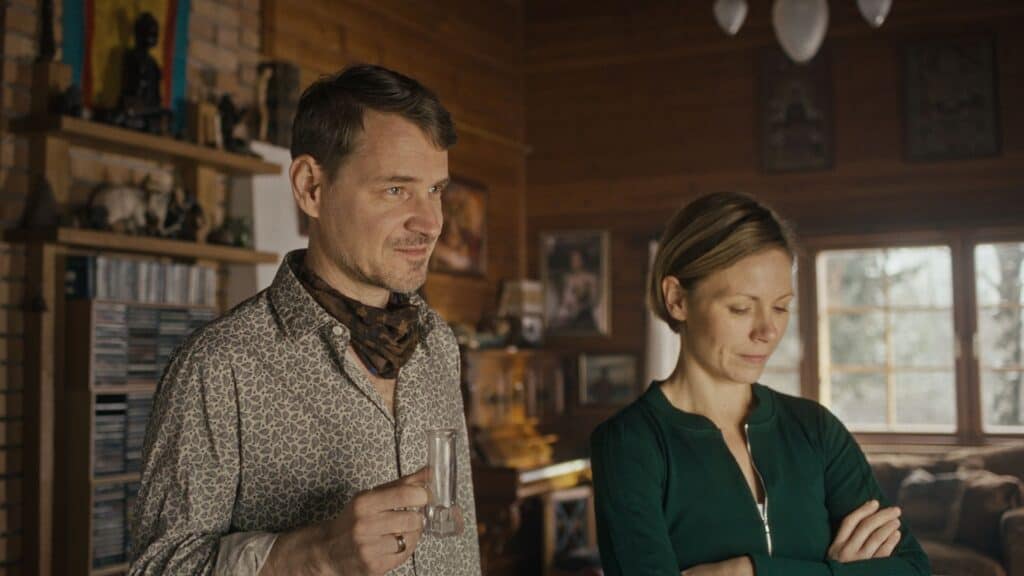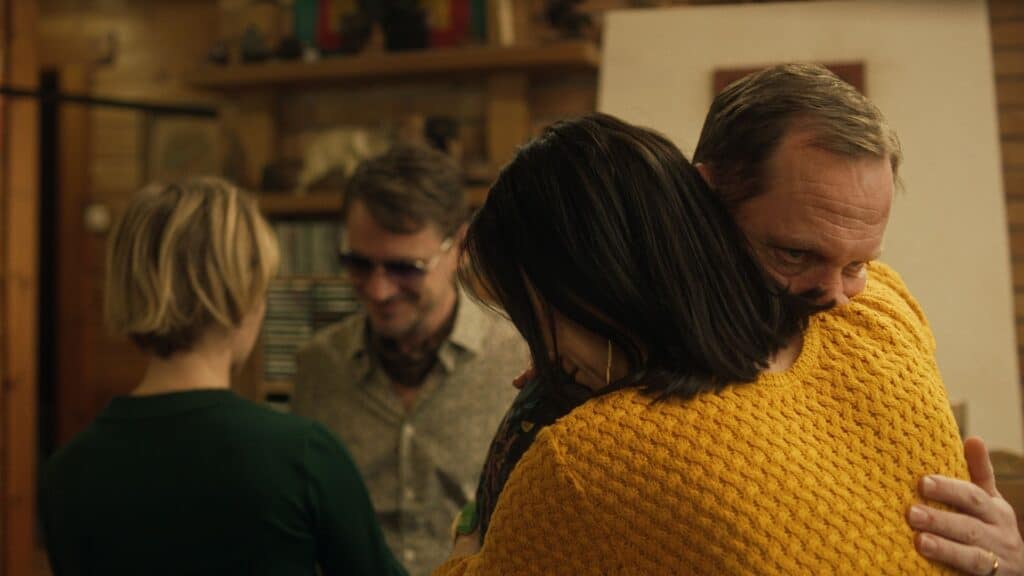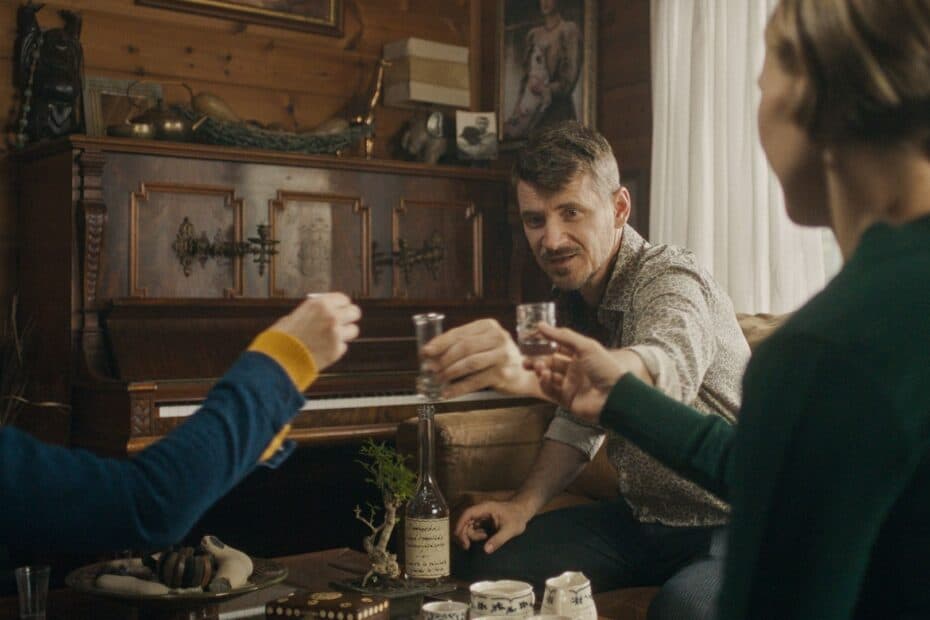Kálmán’s Day (Kálmán-nap) is the latest film by Szabolcs Hajdu (interviewed here). It is also the second film in a trilogy that began with It’s Not the Time of My Life (Ernelláék Farkaséknál 2016) and will conclude with One Percent Native American next year. All three pieces were also performed in the theatre as well. Kálmán (Hajdu) and his wife Olga (Orsi Tóth) are at their house in the countryside. They have invited Olga’s sister, Zita (Nóra Földeáki) and her husband, Levente (Domokos Szabó), to celebrate Kálmán’s name day. The fifth player in the piece is Ernö (Imre Gélanyi), who is Kálmán’s and Olga’s handyman. However, it all begins with a phone call between the sisters.
In this fairly long call, Zita asks her sister to sign a form that proves that they live in their house. The reason is to be able to enrol their child in a better school. The call speaks volumes about Zita, who talks incessantly, occasionally off camera, so we do not always hear what is being said. It’s doubtful if we miss anything substantial. When Olga tells Kálmán about the idea, he rejects it straight out, saying that both he and Olga went to “shitty schools” but still turned out fine and that children today are spoiled. This sequence will pursue the concept of parts of the dialogue (most of Kálmán’s part) being off-camera.

Thus, early on, we are getting used to the idea of characters not only miscommunicating but not even sharing the same (cinematic) space. When Zita and Levente arrive, the communication between the four feels kind of awkward and unbalanced. The lack of balance applies to the gift that Kálmán received: An exercise bar for doing pull-ups. There doesn’t seem to be anywhere in the house where it would fit. An obvious task for Ernö. The four drink the classic Hungarian fruit spirit Pálinka, in this case made of quince. Zita immediately starts talking about her father-in-law, who makes the plum and peach variety. It seems like it’s only a matter of time before someone gets fed up with her babbling.
Kálmán’s Day goes towards its end
Both couples are having problems in their relationships. In Kálmán’s and Olga’s case, the latter’s disinterest in sex is a persistent topic. When Ernö arrives and starts talking about his dead wife, it seems to serve as a kind of welcome relief for the two couples not having to talk about their own issues. I will not go into how the rest of this remarkable film unfolds. At 72 minutes, Hajdu manages to deliver a compact work. The film was shot quickly, but so much is accomplished with Csaba Bántó’s fluid camerawork and the way the camera movements use or define space. Most of the action takes place in the house, but the work’s theatrical roots never stifle the film.

Most of the thespians are well-known from several earlier Hajdu films. The exception is Orsi Tóth as Olga, who is a newcomer in the director’s universe.1She had a very small part in Treasure City (Békeidö 2020). For anyone who has seen her before, for example, in Johanna (2005), it’s no surprise that she is formidable in the part. For those remembering her solely in Mundruczó’s films, the portrait of the asexual Olga might be surprising, but for anyone who has followed her career closely, her range has always been evident. The whole cast is perfect, including Hajdu, who was an actor long before he became a director. It’s not merely a bleak film but an endlessly rewarding one.
At first glance, Kálmán’s Day might appear to be a modest proposal, but it is a mature, gripping and sensitive work, brilliantly conceived, acted and shot. It might be Hajdu’s strongest film thus far, and I can not wait to see the third part of the trilogy when it will be released in 2024.
Seen at the World Premiere at the Black Nights Film Festival in the Critics’ Picks section.

